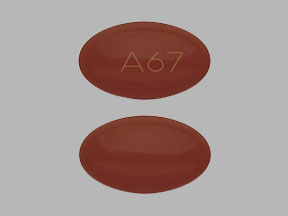Isotretinoin and Alcohol/Food Interactions
There are 3 alcohol/food/lifestyle interactions with isotretinoin.
Isotretinoin Alcohol (Ethanol)
Moderate Drug Interaction
GENERALLY AVOID: The combined use of ethanol and isotretinoin may result in a disulfiram-like reaction. The mechanism has not been established.
MANAGEMENT: Alcohol consumption should be avoided during isotretinoin therapy.
References (1)
- (2001) "Product Information. Accutane (isotretinoin)." Roche Laboratories
Switch to consumer interaction data
Isotretinoin High Cholesterol (Hyperlipoproteinemia, Hypertriglyceridemia, Sitosterolemia)
Moderate Potential Hazard, High plausibility
retinoids - elevated serum triglycerides
The use of retinoids is associated with elevations in serum triglycerides and cholesterol, and decreases in HDL. In addition to cardiovascular risks, elevation of serum triglycerides to greater than 800 mg/dL has been associated with fatal fulminant pancreatitis. Patients at increased risk for developing hypertriglyceridemia during retinoid therapy include those with diabetes mellitus, obesity, high alcohol consumption, or a family history of these conditions. Blood lipid determinations should be performed prior to initiation of therapy and at 1- to 2- week intervals until the lipid response to the drug is established (usually 4 to 8 weeks). Patients with preexisting hyperlipidemia may require closer monitoring during retinoid therapy, and adjustments made accordingly in their lipid-lowering regimen.
References (1)
- (2001) "Product Information. Accutane (isotretinoin)." Roche Laboratories
Isotretinoin Obesity
Moderate Potential Hazard, High plausibility
retinoids - elevated serum triglycerides
The use of retinoids is associated with elevations in serum triglycerides and cholesterol, and decreases in HDL. In addition to cardiovascular risks, elevation of serum triglycerides to greater than 800 mg/dL has been associated with fatal fulminant pancreatitis. Patients at increased risk for developing hypertriglyceridemia during retinoid therapy include those with diabetes mellitus, obesity, high alcohol consumption, or a family history of these conditions. Blood lipid determinations should be performed prior to initiation of therapy and at 1- to 2- week intervals until the lipid response to the drug is established (usually 4 to 8 weeks). Patients with preexisting hyperlipidemia may require closer monitoring during retinoid therapy, and adjustments made accordingly in their lipid-lowering regimen.
References (1)
- (2001) "Product Information. Accutane (isotretinoin)." Roche Laboratories
Switch to consumer interaction data
Isotretinoin drug interactions
There are 144 drug interactions with isotretinoin.
Isotretinoin disease interactions
There are 5 disease interactions with isotretinoin which include:
- intracranial hypertension
- psychiatric disorders
- osteoporosis
- elevated serum triglycerides
- liver disease
More about isotretinoin
- isotretinoin consumer information
- Check interactions
- Compare alternatives
- Pricing & coupons
- Reviews (1,060)
- Drug images
- Side effects
- Dosage information
- During pregnancy
- Support group
- Drug class: miscellaneous antineoplastics
- Breastfeeding
Related treatment guides
Drug Interaction Classification
| Highly clinically significant. Avoid combinations; the risk of the interaction outweighs the benefit. | |
| Moderately clinically significant. Usually avoid combinations; use it only under special circumstances. | |
| Minimally clinically significant. Minimize risk; assess risk and consider an alternative drug, take steps to circumvent the interaction risk and/or institute a monitoring plan. | |
| No interaction information available. |
See also:
Further information
Always consult your healthcare provider to ensure the information displayed on this page applies to your personal circumstances.


